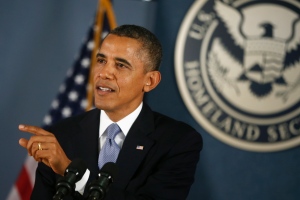There’s no refuge in the suburbs from Canada’s housing affordability problem.
You can buy a house for less money in the suburbs than you can in a big city, but the cost of commuting may kill almost all your savings. Some number-crunching by a public-spirited mortgage broker in the Toronto area makes this point quite clearly.
David Hughes, with the Mortgage Group Ontario Inc., divides his clients into a couple of groups with respect to attitudes toward living in suburbia: One group wants to live in the suburbs and is fine with the idea of commuting, and then there are those who want to live downtown, but can’t afford the prices. He finds people talking more about the cost of two working parents commuting by car every day. He explains this shift as being a result of the bigger mortgages people are taking on, and the considerable cost of buying and owning a car.
If you plan to live outside the city where you work, commuting costs must be part of your housing affordability analysis. Mr. Hughes said he delicately makes this point to clients that come in with thoughts of suburban living. “I don’t want to see anyone impoverished by their choice.”
Living in the suburbs
| Home purchase price |
$500,000
|
|
| Downpayment |
$50,000
|
|
| Mortgage principal (includes 2% CMHC fee) |
$459,000
|
|
| Auto costs annually |
$19,000
|
|
| 25 years of automobile costs |
$475,000
|
|
| Monthly mortgage payment 25 years at 3.5% |
$2,291
|
|
| Monthly automobile expenditures |
$1,583
|
|
| Mortgage plus automobiles, monthly |
$3,874
|
|
| Post-mortgage car costs: 15 years of 1 car |
$142,500
|
|
| Total paid for home (interest and principal) |
$687,495
|
|
| Total paid for cars |
$687,495
|
|
| Total paid to live and get around for 40 years |
$1,304,995
|
|
Living in the city
| Home purchase price |
$720,000
|
|
| Downpayment |
$50,000
|
|
| Mortgage principal (includes 2% CMHC fee) |
$688,425
|
|
| Auto costs annually |
$6,000
|
|
| 25 years of automobile costs |
$150,000
|
|
| Monthly mortgage payment 25 years at 3.5% |
$3,437
|
|
| Monthly automobile expenditures |
$500
|
|
| Mortgage plus automobiles, monthly |
$3,937
|
|
| Post-mortgage car costs: 15 years of 1 car |
$90,000
|
|
| Total paid for home (interest and principal) |
$1,031,130
|
|
| Total paid for cars |
$240,000
|
|
| Total paid to live and get around for 40 years |
$1,271,130
|
|
Assumptions
- Car costs estimated at $9,500 per year for a compact car using CAA numbers times two vehicles
- Downtown transportation costs pegged at $235.50 for 2 adult transit passes per month plus discretionary transit spending of $264.50 per month
- Mortgage is paid over 25 years at a constant rate of 3.5 per cent
SOURCE: DAVID HUGHES
GRAPHIC BY STUART A. THOMPSON AND JOHN SOPINSKI
Reflection: As the price of houses is rising crazy, lots of people choose to move to some remote areas to save their money; however, the commuting cost may exceed what people expect Therefore, wisely choosing the living place becomes more important nowadays.
source: http://www.theglobeandmail.com/globe-investor/personal-finance/mortgages/the-real-cost-of-suburbia/article14733912/



